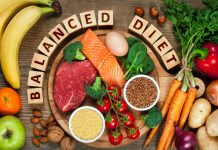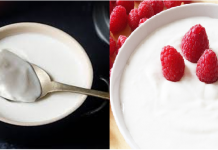It is common belief that whole foods are basically the healthiest food you can get because their natural compositions are neither diminished nor artificially enhanced by added salt, sugar, fat, carbs, chemicals, etc.
Fruits, vegetables, unpolished grains, beans and animal products; any food whose natural form or composition has not been interfered in any way is categorized as a whole food. You can also think of them this way- they are foods that are almost as natural in their making as you can get from the wild. I say ‘almost’ because there are foods categorized as ‘whole’, but are not entirely unprocessed or unrefined. For instance, pasteurization of milk is not considered an unnatural process and, therefore, milk is still a whole food.
Whole Foods Vs. Organic Foods
Whole foods are sometimes confused with organic foods, which actually refer to poultry, meat and dairy products that come from animals naturally without any antibiotic or growth hormone content; fruits and vegetables are considered organic if they have not been treated with pesticides or fertilizers. So not all whole foods are organic, and vice versa.
How Are Whole Foods Healthier Than Processed Foods?

Each and every food naturally contains vitamins, minerals and fibre. When processed, all these natural ingredients are lost, thereby, making the food less healthy than it was in its former natural state. Moreover, processed foods contain artificial colours and flavours, which have a negative impact on the health of a person. Additives and preservatives like salt, sugar, etc. are linked to obesity and high blood pressure and processed foods contain quite a considerable amount of these. The human body can easily break down naturally occurring sugars and sodium but not artificial additives.
A number of studies show that a diet rich in whole foods like fruits, vegetables and whole grains reduce the risks of cardiovascular diseases, certain types of cancer and type 2 diabetes.
Besides vitamins, minerals and natural fibre, they also contain phytochemicals or the natural compounds occurring in plants whose multiple significances have been identified and still more yet to be identified. Some of such phytochemicals are antioxidants like flavonoids, carotenoids and lycopene, which are crucial in protecting cells against damage.
Does A Whole Food Diet Help to Lose Weight?
Yes and no. Confused? Well, while whole foods are not directly instrumental in weight loss programs, they indirectly help to maintain weight and help reduce the chance of any weight gain. How, you ask? Now, processed foods, like we mentioned earlier, contain artificial additives and preservatives which the body cannot break down like it can the natural sugars and sodium, thereby contributing to the weight gain of a person.
Hence, if you were to avoid processed foods and instead lean towards whole foods, you would naturally be stacking the odds in your favour when it comes to weight management. Moreover, they contain fewer calories than processed foods and a higher nutrient content. Of course, a 5 – minute meal is easier to cook than a proper meal that will definitely likely take your time and effort to prepare and cook; but it’s also definitely worth it!


 Traqade
Traqade
































Shipping of raw dietary products is refreshing and growing in leaps and bounds
Choosing whole foods over processed ones seems like a smart step towards better health.
Thank you
thanks
https://fridaynightfunkinmod.com
Eating foods that are as close to their natural state as possible with little processing is the focus of the Whole Foods Diet. Rich in nutrients, this diet lowers the risk of chronic diseases, helps control weight, and improves general health. Explore the variety of Halloween Jacket to style up impressive wardrobe.
Everything you need to know covers all the essentials on a topic, providing a quick yet comprehensive overview. This approach ensures you are well-informed without feeling overwhelmed, from foundational concepts to key details. Says CV Writers UAE whether it’s about career advice, a new skill, or industry insights, knowing the basics helps you dive deeper with confidence. A well-rounded understanding of everything you need to know offers clarity and prepares you to make informed decisions or hold meaningful discussions.
This article is quite interesting to read. It covers everything you need to know about upcoming events. Essay writing services are among the best and most beneficial resources for students. These services cater to the needs of students, providing support that many of them find valuable.
Hoor Fashion PK owner believe that embracing a whole foods diet is just as important as embracing a healthy lifestyle and taking care of yourself from the inside out. Eating fresh, nutrient-dense foods not only nourishes your body but also gives you the energy and confidence to look and feel your best. Just as we carefully select high-quality fabrics for our fashion collections, choosing whole, unprocessed foods ensures you’re making the best choice for your overall well-being. Here’s to living healthy and stylish, one nutritious meal at a time.
This article about the Wholefoods Diet is packed with great information and emphasizes the significance of eating natural, nutritious foods. Just as clean eating energizes your body, the Las Vegas Jacket offers stylish and comfy outerwear that complements your lifestyle with confidence and quality, proving that wellness and style truly go hand in hand!